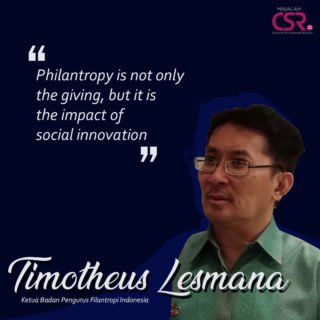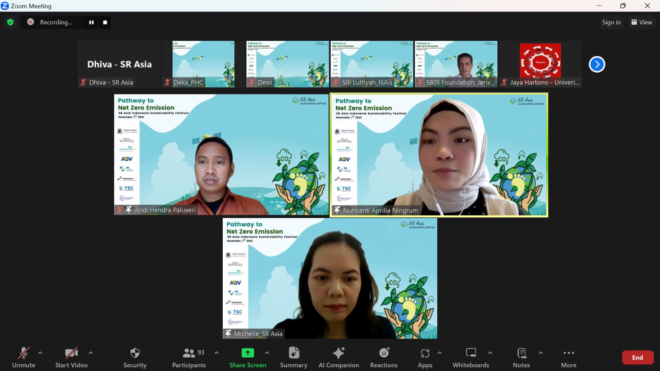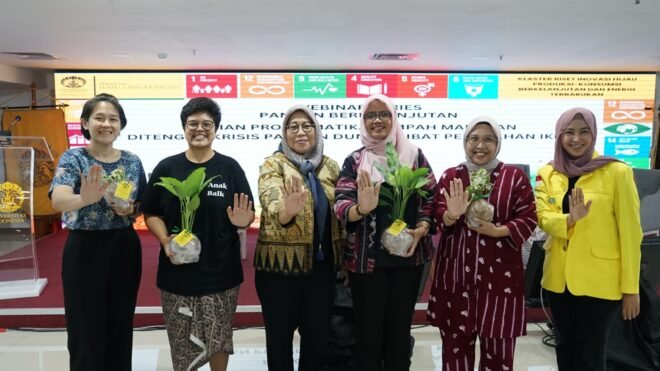MajalahCSR.id – Nowadays, there is a growing number of companies communicating their environment, social, governance (ESG) performance through sustainability reporting (or integrated reporting), answering to the increasing pressure from stakeholders for corporate sustainability and transparency. Nonetheless, there are still common misconceptions in the practices.
From the terminology, many thought that sustainability report is merely the summary of annual report, especially covering the company’s outreach programs, philanthropic events, or community development activities. Contradictory to annual report that provides the company’s governance, financial, and management performance, sustainability report rather focuses on the impacts of both financial and non-financial performances. Others may assume that sustainability report is the same as the corporate social responsibility (CSR) report, reducing the sustainability concept to companies’ community development activities.
These misconceptions lead to missing contextualization of sustainability in the report. The contextualization may come in the form of outlining the company’s commitment, management system, policy, and initiatives related to the company’s sustainability strategy. It is necessary in order to create meaning to the report, such as efficiency, awareness, business resilience and competitiveness, and supporting the development of the surrounding community and employees.
Further, the misconceptions make common mistakes inevitable in the reporting practices. The most common one is using a tick-mark basis rather than a principle basis. This will hinder the company to convey its comprehensive and integrated message on sustainability.
Besides, the company will end up over claiming commitments whilst not having supporting evidence. To avoid this mistake, treating sustainability as a journey is essential. It does not only help the company in tracking its progress through designing a sustainability roadmap, but also in improving the next reporting quality.
Another common mistake is disclosing all materiality topics regardless its relevancy and significance to the company’s sustainability context and not prioritizing stakeholders’ concerns. This mistake correlates to the assumption of “the thicker the report, the better”, due to the disclosure of nonessential information or irrelevant to the business’ sustainability context in the report. Usually, it is a sign of the lack of understanding of the business industry, process, risks, and topic materiality.
So, why do these common mistakes and challenges keep happening?
Often, the ESG strategy runs in a silo. In other words, the ESG strategy, or lack thereof, is defined and actualized in isolation by the company’s specific department. No dialogue with the executive leadership team and board of directors presents in defining the company’s sustainability. In another scenario, there is no dedicated team in managing the company’s ESG or if there is, the team lacks capabilities and knowledge.
Sustainability in the business sector is continuously expanding. This phenomenon can be seen from the growing variety of reporting frameworks and guidelines, as well as indexes and references.
In the COVID-19 era, many researchers and publications have also come to the conclusion that sustainability and integrated reporting is important to increase the company’s business values, including the stock price.
The status quo puts emphasis on the huge responsibility borne by the sustainability and integrated reporting professionals. As the report acts as the face or the image of the company, the report content must be up to par with reporting standards. Otherwise, it will affect the perception of stakeholders, especially investors, about the company.
Indeed, drafting a sustainability report needs certain skill sets and understanding. However, participating in training does not guarantee competency. Certification program is a way to get over this hurdle.
In Indonesia, to date, there is no accredited certification program that both provides standardized competency and encourages continuous improvement of the professional. To fill the need, SR Asia launched SR Asia Global Certification.
The certification program trains professionals with the skill sets and understanding, necessary to accompany companies in their sustainability-reporting journey. The competency will then be tested upon rigorous examinations. With its certification validity, SR Asia Global Certification Program is also notable in guaranteeing the professional’s continuous improvement.
This article is based on the presentation of Juniati Gunawan, PhD, the Director of Trisakti Sustainability Center (TSC), in a webinar titled “The Future of Sustainability and Integrated Reporting Professionals” organized by SR Asia. TSC and SR Asia have been working together hand in hand to advocate the appropriate practices of sustainability and integrated reporting in Indonesia. Access all the webinar materials here and YouTube replay here.
Writer:
Nabila Khoiru Nisa – Programs & Communications Officer for SR Asia Indonesia
Editors:
Dr. Semerdanta Pusaka – Country Director for SR Asia Indonesia
Juniati Gunawan, PhD – Director for Trisakti Sustainability Center (TSC)









